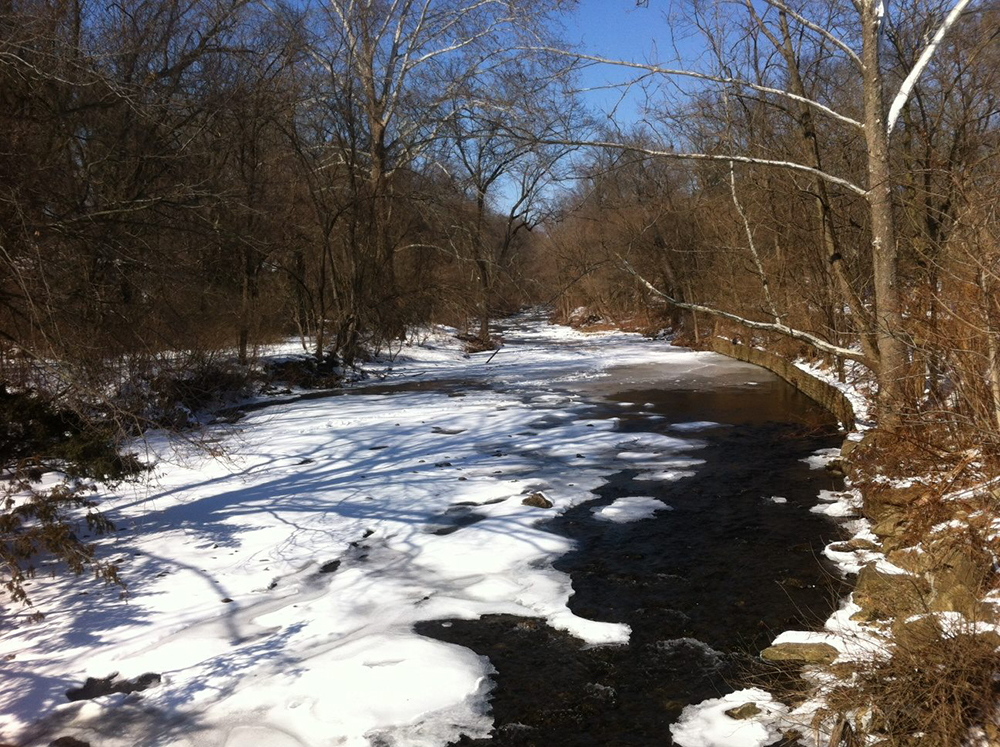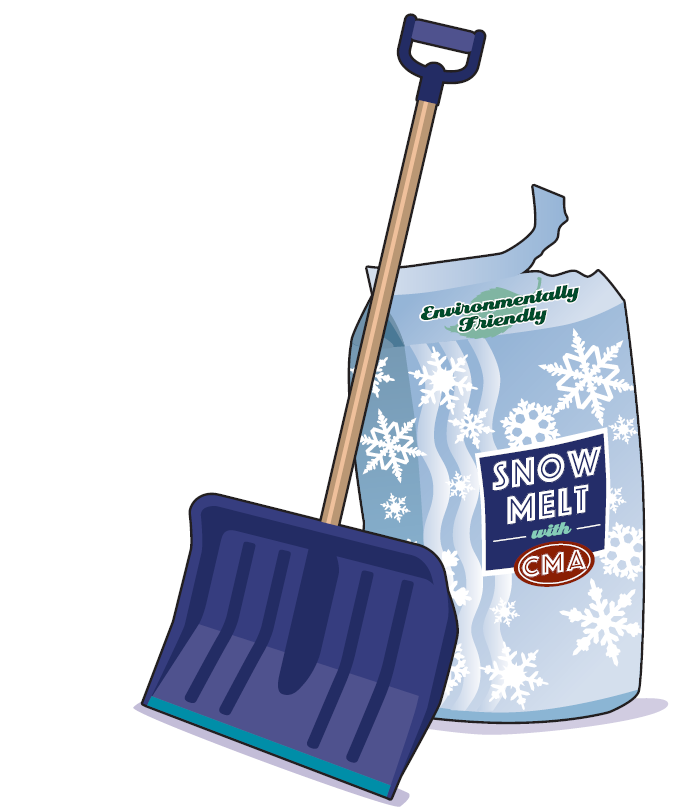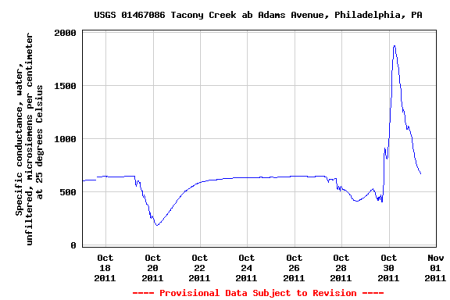
The beautiful Tacony Creek in winter. Smart use of deicing products can help minimize impacts on our watersheds. Credit: TTF Watershed Partnership.
If you're the kind of person who thinks about the health of our urban watersheds, you've probably wondered if using too much salt on driveways and sidewalks can hurt Philly's rivers and creeks.
As snow piles up in the winter, we often turn to salt or other solutions to melt snow and ice as an important public safety measure that saves lives on our roadways every year.
Still, it's important to know that all deicers can be harmful to our drinking water supply and the environment when overused, so the best strategy is to read the labels and use as directed only when needed. High concentrations of salt can damage and kill vegetation and harm freshwater ecosystems and fish. Excess salt can also seep into the ground and destroy soil structure, which can lead to erosion and further pollute waterways.
Use these winter deicing tips to help protect our watersheds:
- The first line of defense should always be shoveling sidewalks and pathways to keep them clear and prevent ice from forming. Salt and deicers are not effective when more than 3 inches of snow have accumulated.
- Consider the temperature. Salt and calcium magnesium acetate (CMA) are much more effective at melting snow and ice at temperatures above 25 degrees.
- Reduce salt and other chemicals by adding sand for traction.
- Focus your use of deicing products on high-traffic areas and slopes where traction is critical. By using the least amount necessary to get the job done, you save money and will minimize property damage to paved surfaces, vehicles and plants.
- Have pets? You should consider using reduced amounts of traditional road salts or alternatives that are less harmful to paws. Keep these products out of reach of pets and children.
Remember: you can still effectively control ice and keep surfaces safe even with reduced usage of traditional road salt.
In addition, many safer alternatives can be found at local hardware stores.
Check the labels for products containing potassium chloride, calcium chloride and magnesium chloride, corn processing byproducts, and calcium magnesium acetate (CMA). These alternatives can be spread in a dry form or sprayed as a liquid and work best when used with salt. Together, they work more efficiently so you can use less.
Want to learn more about how snow removal and deicing impacts waterways? Check out the Pa. Department of Environmental Protection's fact sheet on the major issues.


